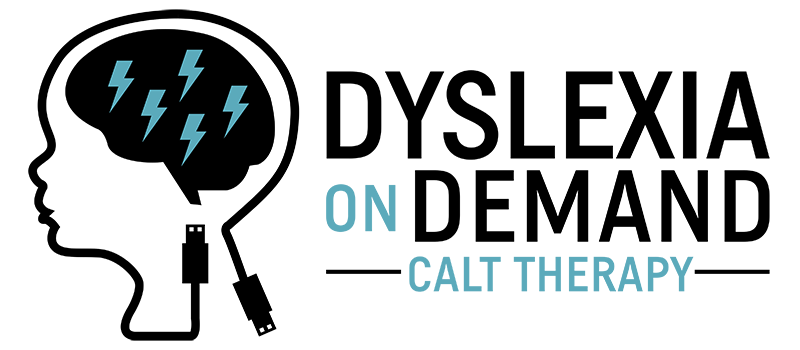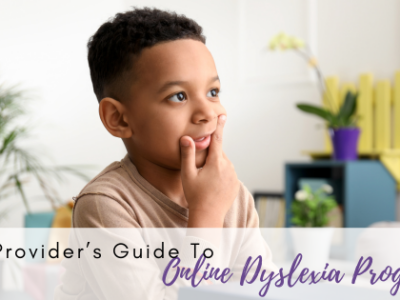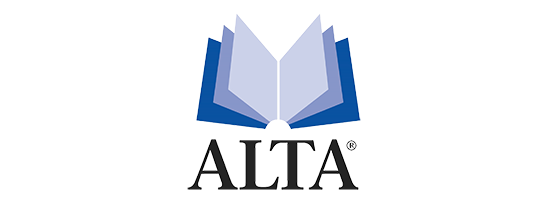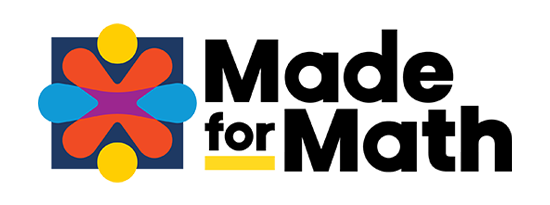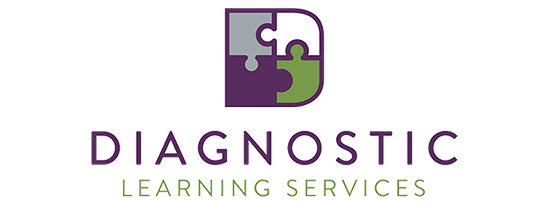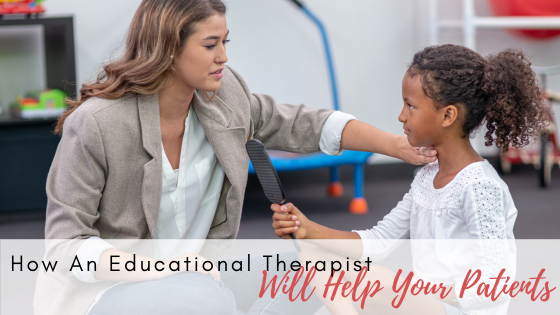
How An Educational Therapist Will Help Your Patients
If you’re someone who works to help young people improve and maintain good health, then you know that health is not just physical. Mental health has become a major concern in the lives of young patients in recent years. More than that, so many aspects of young patients’ lives are affected by their everyday activities—the relationships and connections they have or don’t have, their daily experiences in and out of a classroom, and their time spent exercising—or not exercising. There are so many things that contribute to a patient’s overall health. For students who struggle with specific learning disabilities like dyslexia, the help of educational therapists can be so valuable; they can be the piece of the puzzle that really helps patients to achieve optimal health in the academic area of their lives. Read on to learn more about how an educational therapist will help your patients.
Educational therapists can help to identify learning difficulties. Do you have a patient whose parents are presenting concerns about performance or behavior in the classroom? Working with educational specialists could help with a solution. These experts are well-versed in administering assessments to students. This helps to identify underlying issues that could be affecting your patients’ academic performance. Some possible learning issues could include dyslexia, ADHD, dysgraphia, or problems with executive function.
Help to bridge the gap. So often, patients get diagnosed with a learning difficulty, yet they have no plan of action to implement after the diagnosis. Whether you or an educational therapist provide a diagnosis of specific learning disabilities, an educational therapist can provide specific strategies and interventions to address the issues.
These experts can help to create personalized learning strategies. Perhaps your patient needs more guidance when it comes to his or her academic experience. Educational therapists work with students to develop individualized learning plans that help to address their specific learning styles and needs. This kind of tailored learning plan empowers your patients to become more successful learners.
They can help build confidence and self-esteem. When young students struggle in the classroom, it can be detrimental to their self-image. Educational therapists help to create supportive environments so that students are able to build confidence in their abilities. In turn, this helps them to develop a more positive attitude for learning and academics.
There is a specific focus on empowering life skills. Educational therapists can help students with the development of skills like self-awareness, planning, organization, time management, executive functioning, study skills, working memory, and even self-monitoring. Skills like this are truly essential for academic success and independent learning, which is invaluable for your patients.
They create an opportunity for collaboration. Educational therapists can function as a great part of a support network. They can collaborate with providers, parents, and teachers to achieve consistency in the different approaches and interventions used in different settings for the student.
They can assist with the development of language skills. When your patient works with a dyslexia therapist in a program like Dyslexia on Demand, the therapists place a strong emphasis on the components of effective reading instruction including vocabulary, phonemic awareness, fluency, and reading comprehension. Your patients’ education could be enriched by this kind of direct instruction from therapists.
Educational therapists can be valuable partners in promoting your patients’ academic success, fostering self-confidence, and developing key learning skills. Dyslexia on Demand is a great resource for patients who struggle in the classroom as a result of dyslexia.
Students get to work closely with specially trained experts. Educational therapists bring years of their own education, training, and experience to the table when they work with your patients. Many therapists are specially trained in specific teaching methods such as Orton-Gillingham based programs. At Dyslexia on Demand, students work with Certified Academic Language Therapists—also known as CALTs. CALTs are qualified to implement therapeutic-grade dyslexia intervention programs. All of this education and training can benefit your patients and help to improve their academic experience as well.
Interventions are intensive. At Dyslexia on Demand, dyslexia therapy sessions occur one-on-one or in small groups. It is recommended that students work with CALTs multiple times per week over a sustained period of time. This intensive approach can really improve your patients’ accuracy, fluency, and comprehension.
Many learners benefit from a multisensory approach. Dyslexia therapy aims to bring in multiple senses in order to improve students’ success. At Dyslexia on Demand, CALTs work to integrate visual, auditory, and kinesthetic skills as they work with students.
Dyslexia on Demand wants to help. A major goal of Dyslexia on Demand is to make dyslexia therapy accessible to students—no matter their geographic location or proximity to qualified interventionists. Through online dyslexia therapy programs, our mission is to change the lives of children with dyslexia. We want to move students from struggling with reading to becoming confident, capable readers.
The best dyslexia therapy programs can help your patients to become more responsible and independent students. Dyslexia on Demand uses the latest research-based programs to help students improve in reading, writing, handwriting, spelling, study skills, and even math.
Are you ready to recommend dyslexia therapy to your patients? Reach out to Dyslexia on Demand by calling 888-292-3906, or go online to learn more about our dyslexia therapy programs.
